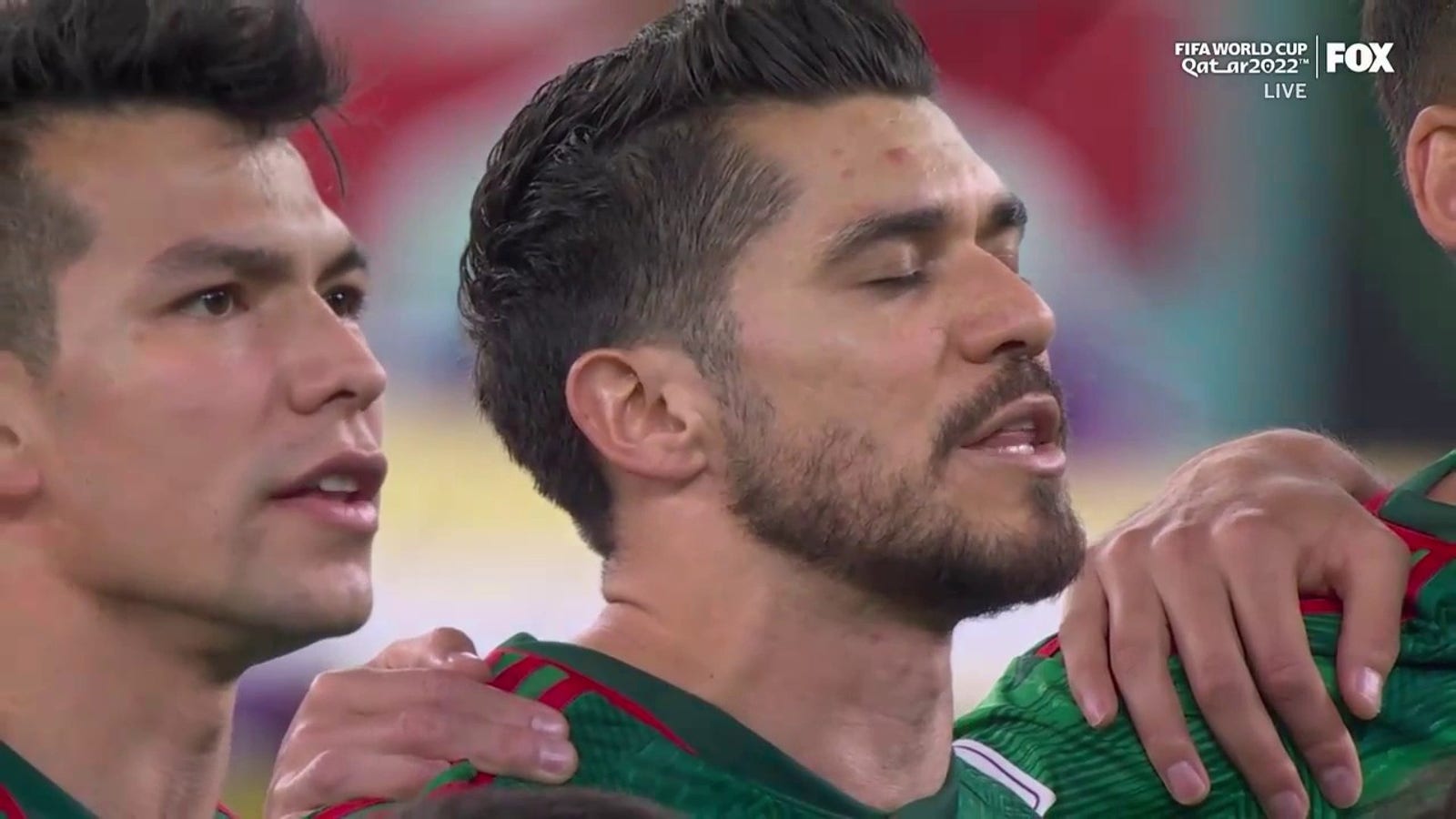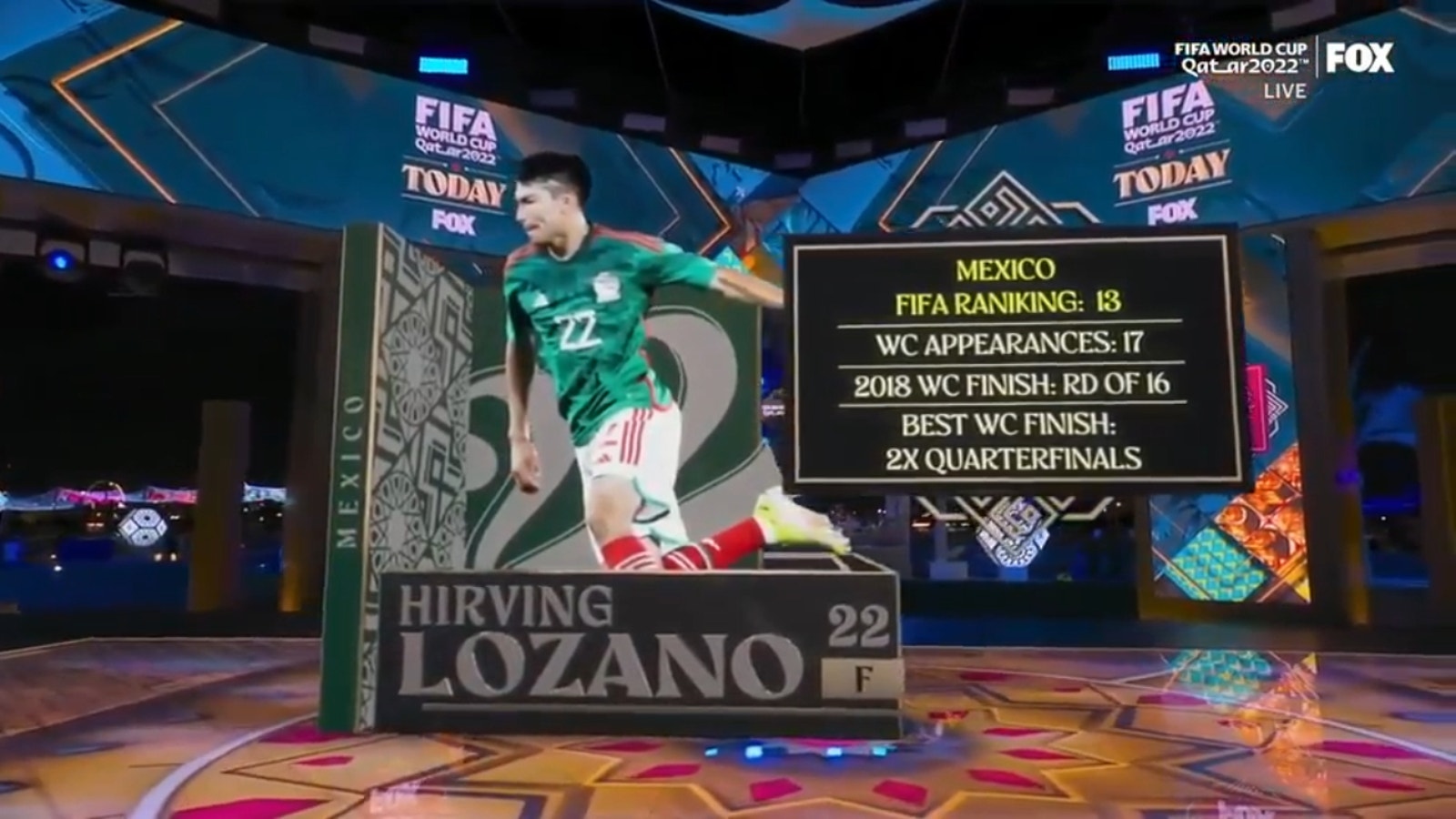Is it OK for U.S. fans to support Mexico at World Cup?


With the World Cup group stage being a frenzied whirlwind of activity — 48 games across 13 days featuring the biggest names and teams soccer has to offer — there are all kinds of burning questions right now.
But there’s just one, for fans of the United States, that is guaranteed to spark a heated debate, without fail, every single time.
Is it OK to also root for Mexico?
In virtually any other country of the planet, the answer about supporting your nation’s rival would be a firm and resounding “no.” Giving any kind of affection to your fiercest foe would be utterly unthinkable in Europe or South America, where soccer tribalities run deep and historic.
However, the uniqueness of the geographic and societal relationship between the USA and Mexico, and especially the impact Mexican culture has had on the development of American soccer, add a whole new layer to the discussion.
Mexico’s National Anthem ahead of opener
Check out Mexico’s National Anthem ahead of their group stage matchup with Poland.
For Landon Donovan, it is not even a discussion.
Of all people who you might think would want Mexico to lose — El Tri takes on Argentina in a crucial Group C showdown on Saturday (2 p.m. ET on FS1 and the FOX Sports App) — Donovan might be at the top of the list. He was the player Mexican fans loved to hate, after his memorable goal for the Americans in the 2002 World Cup round of 16 and his status as the USA’s best player for much of his career.
But it’s not so.
Donovan took part in an advertising campaign for Wells Fargo during the 2018 World Cup holding a scarf that read “My other team is Mexico.” He received quite a backlash for it at the time. But he is steadfast in his conviction, and hearing him tell his side, it starts to make sense.
“I wouldn’t be anything like the player I was without Mexican soccer culture,” Donovan told me. “All the kids I grew up playing with in Southern California were Mexican-American, that’s why I learned to speak Spanish. The way they played, the passion for the game. It has contributed so much to the growth of American soccer.
“I am fine if people could never want a rival country to do well, and I understand it. But it is also OK if you do, if you have a second team or cheer for someone else when they are playing. I think especially for U.S. fans who also have a family connection to Mexico or have had some kind of experience like I had, for some of them it is a natural thing to do.”
Mexico’s strengths
Will Mexico make it out of its group, as usual? The “FIFA World Cup Now” crew discusses.
Back in 2018, I wasn’t onboard with his viewpoint. I didn’t see how it was possible to be a true fan of one team and also have any kind of love for its rival. I’ve since changed my mind, mostly due to speaking with people like Donovan, and fans, and hearing their stories.
Dr Daniel Diaz, a sports physician based in Los Angeles, grew up in a Mexican-American household in Pasadena, Calif., and has joint loyalties at this World Cup.
“It is like having two kids,” Diaz told me, via telephone. “You love one kid, and when another is born you wonder if you’re going to have to split your love. Of course, you don’t, you love them both.
“Some of my die-hard Mexico national team friends make fun of me, but the United States is obviously a part of me and who I am as well. If I stopped supporting one of the teams it would be like giving up a part of myself.”
Diaz grew up following Mexican soccer and boxing along with members of his family. His affinity for the USA team came through USMNT legend Cobi Jones. After Los Angeles Galaxy games at the Rose Bowl in the inaugural season of MLS in 1996, Jones would stop to chat and hang out with locals and fans in the parking lot, and it made a big impression on Diaz, then in middle school.
“That was the start of me looking more toward the USA, hoping they did well,” Diaz said. “Being a fan of both, it really makes the World Cup special. You get at least six games that you deeply care about.”
Admittedly, it is much less common in Mexico to find anyone who would want the USA to do well. South of the border there is a longer-established and more traditional soccer culture, whereas the USA has developed its own soccer identity, with its own set of customs. This is one of them, whatever people overseas might think.
Also, naturally, the USA national team has a hard-core element to its following who would never dream of rooting for Mexico, and that’s fine too.
Realistically, it is hard to imagine many of the noisier member of the American Outlaws, the passionate fan group that follows Gregg Berhalter’s men, well, everywhere, daubing green paint on their cheeks anytime soon, even if Mexico was to go on a deep run.
When Donovan played qualifying games at Mexico City’s famed Azteca Stadium, he would be routinely booed every time he touched the ball. Fans would bang on the side of the American team bus as it made its way to the stadium, and camp outside the USA hotel the night before to try to disrupt their sleep.
But Donovan says that for all the vitriol that was directed toward him on the field, away from soccer is it very different.
“Let me tell you, I never had a bad interaction with a Mexico fan that I met, and I meet them all the time,” said Donovan, who lives close to the Mexican border, in San Diego, Calif. “They love the game, they are always extremely respectful and happy to meet you. The United States has amazing soccer fans, and it is my country, and I love it dearly.
“But I am grateful for this soccer connection that the two countries have. The rivalry makes both teams better. And if you want to cheer for Mexico when the U.S. is not playing, or vice versa, no one should feel bad about that.”
Read more from the World Cup:
Martin Rogers is a columnist for FOX Sports and the author of the FOX Sports Insider newsletter. Follow him on Twitter @MRogersFOX and subscribe to the daily newsletter.

Get more from FIFA World Cup 2022 Follow your favorites to get information about games, news and more








